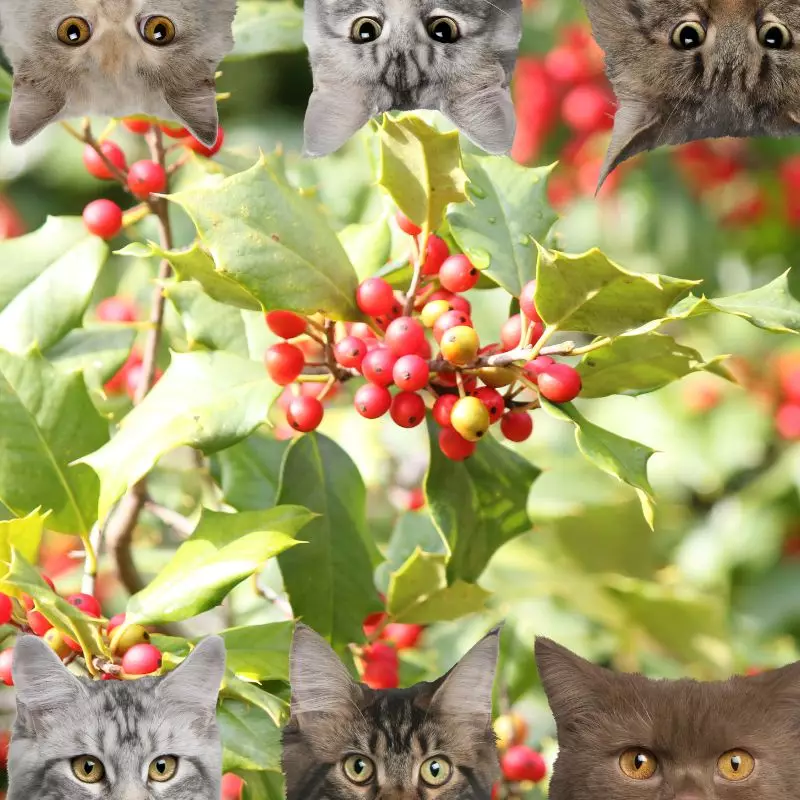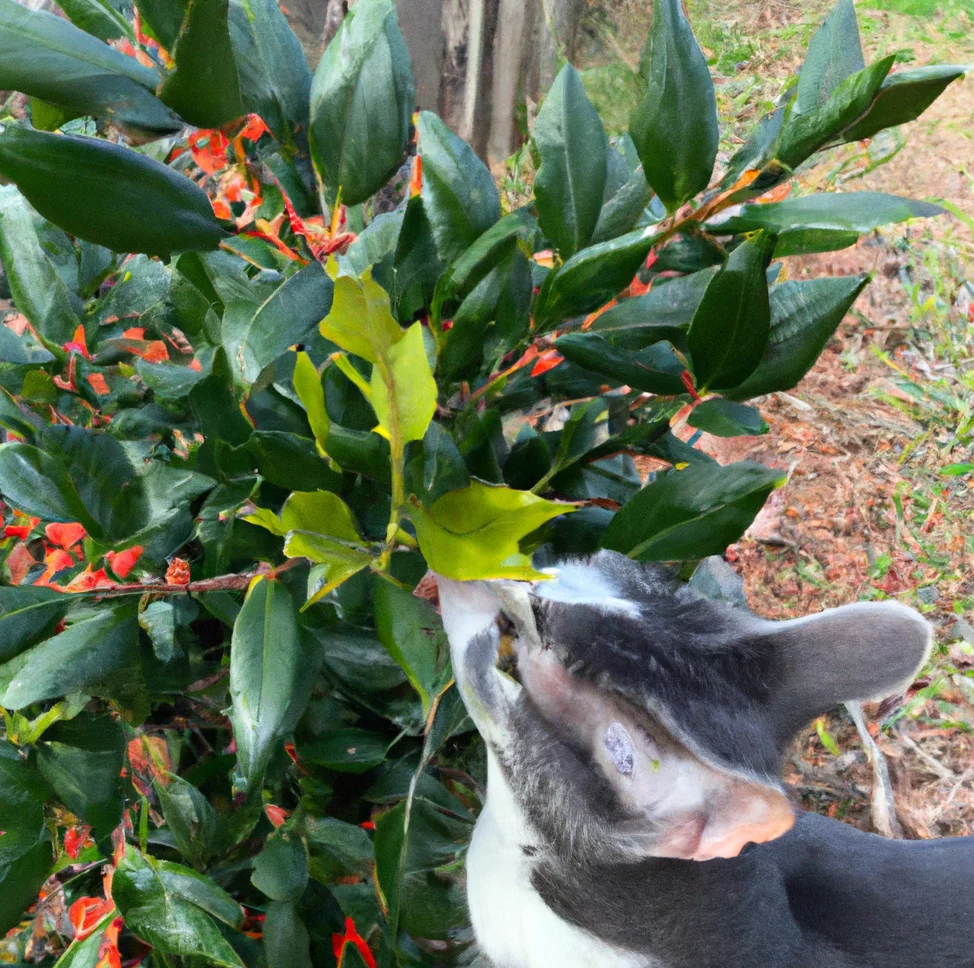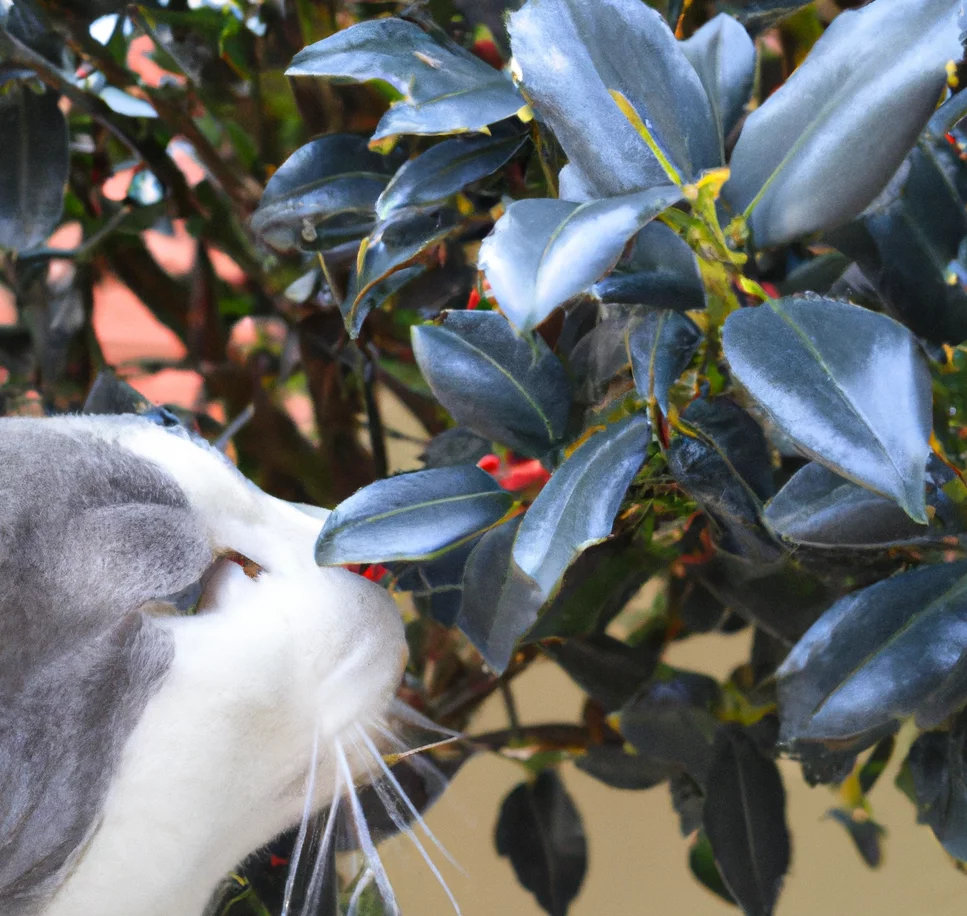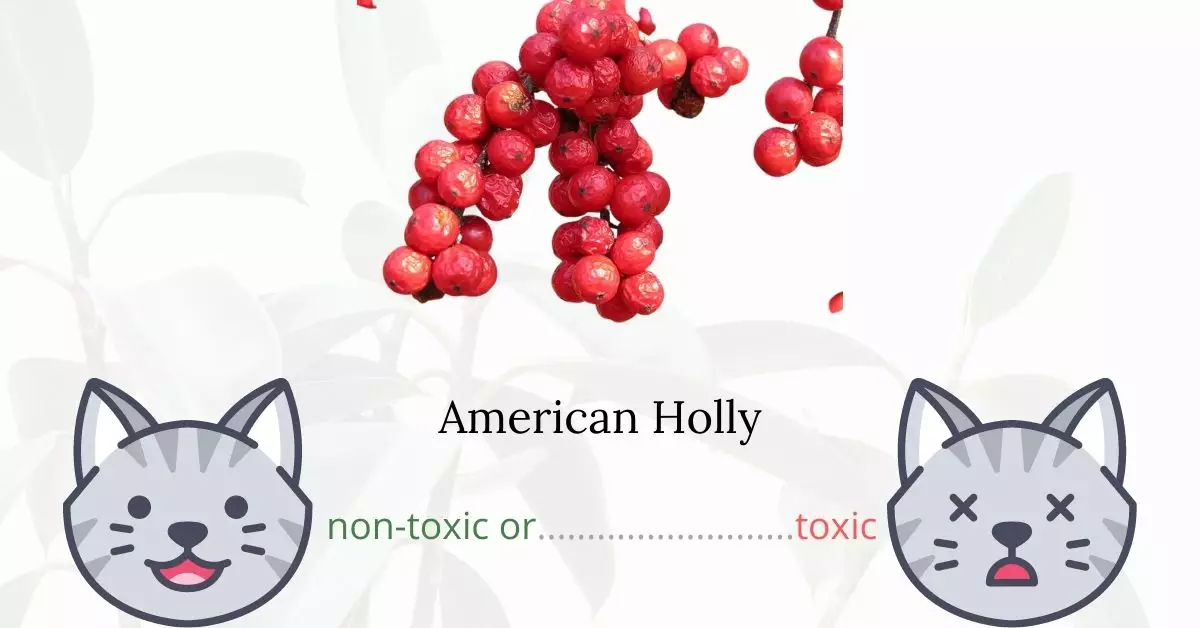American Holly, commonly referred to as Winterberry, is indeed toxic to cats. The holly plant contains harmful substances such as cyanogens, methylxanthines, and saponins. Particularly, its leaves and green berries have the highest concentration of glycosides, which are potentially dangerous to feline health. Ingestion can lead to changes in the permeability of small intestinal mucosal cells and cause red blood cell death. Thus, cat owners should be cautious and prevent their pets from accessing or consuming this plant.
This article has been written in collaboration with a team of experienced DVMs (doctors of veterinary medicine). With their invaluable insights, we aim to provide the most accurate and up-to-date information concerning the potential risks associated with plants like the American Holly and their effects on cats. Our research also includes high-authority websites such as ASPCA and PetMD to ensure comprehensive coverage on every plant topic discussed.
Clinical Signs of American Holly Poisoning in Cats

The ingestion or contact with American Holly can lead to an array of symptoms in cats, primarily due to the presence of cyanogens, methylxanthines, and saponins in its spiny leaves. Here’s a breakdown of the signs and the underlying causes:
- Vomiting (possibly with blood): This is a direct result of gastrointestinal irritation caused by the plant’s toxins. The presence of blood may indicate internal injuries or severe irritation.
- Drooling (hypersalivation): Excessive salivation often occurs due to the immediate nauseating effect of the toxins when they come into contact with the cat’s oral mucosa.
- Loss of appetite: The nausea and gastrointestinal distress caused by the toxins can lead to a reduced desire to eat.
- Abdominal pain: This is a result of the gastrointestinal tract being directly affected by the harmful substances in the American Holly. The cat may appear restless or show sensitivity when the abdomen is touched.
- Diarrhea: The irritants in the plant can disturb the cat’s digestive system, leading to loose or watery stools.
- Head shaking: This could be a reaction to the discomfort or taste after contact or consumption of the plant.
- Lip-smacking: This repetitive behavior may stem from the cat trying to rid its mouth of the unpleasant taste or sensation caused by the toxins.
- Caffeine-like stimulatory effects: Methylxanthines can produce symptoms similar to caffeine intoxication. This may manifest as restlessness, rapid breathing, or even tremors in cats.
It’s essential for cat owners to be observant and seek veterinary assistance promptly if any of these symptoms are noticed after their pet has had contact with American Holly.
First Aid and Treatment of American Holly Poisoning in Cats

Immediate attention and veterinary care are important to ensure your cat’s fast recovery. Any residue of the ingested holly plant must be removed from your cat’s system so treatment may include vomit-inducing. The spines on the leaves of the American Holly are known to irritate the esophagus, Kapectolin may be used to coat the lining of the throat and stomach. Fluids may also be administered by the vet to replenish the feline’s hydration if he or she suffered from vomiting and acute diarrhea.
Recovery from American Holly Poisoning in Cats

There is no record that confirms cat deaths as a result of Holly consumption. American Holly has a minimal level of toxicity, and almost all cats recover completely within 24 hours. It might take more time for your cat to heal if he or she has not taken any veterinarian care.
Prevention of American Holly Poisoning in Cats
Since holly is common in households particularly during holidays, it is highly advisable to remove all of the berries from any decorations before bringing them into your house to prevent your cat from accidentally ingesting them.
If you love plants but have cats at home, check out these lists:





